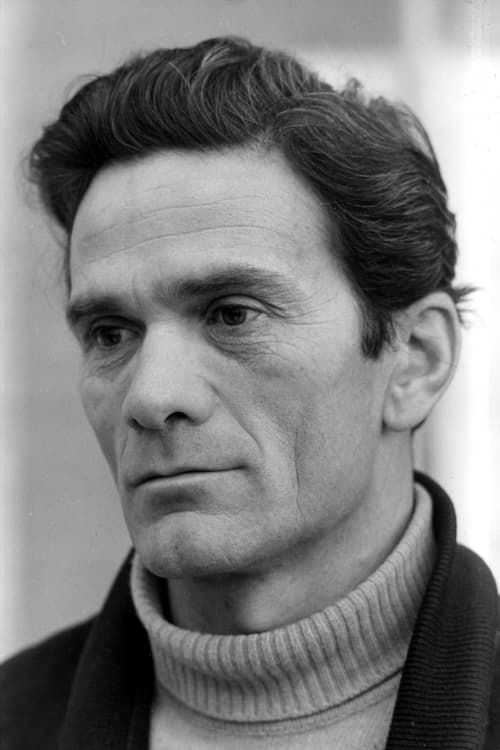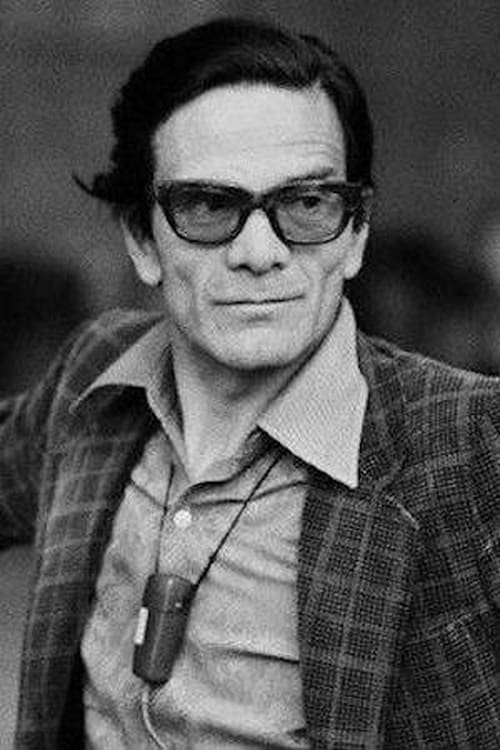
Himself
A 16 mm film recovered from the French director's boxes, with images of Varda, Pasolini and New York. Pasolini is shown walking in the Big Apple (where he went to present 'Hawks and Sparrows').
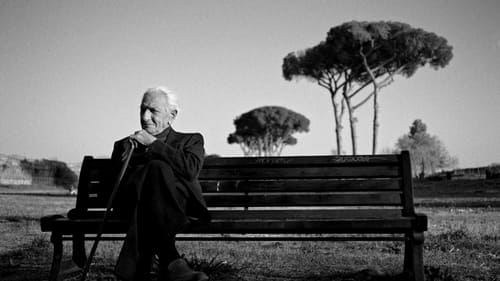
Self - Filmmaker (archive footage)
The life of the legendary Italian photojournalist Paolo Di Paolo through his photographs, which capture the essence of a fascinating and turbulent Italy, the one inhabited by Anna Magnani and Pier Paolo Pasolini, a country that no longer exists.

3,700 km of coastline, a Fiat 1100, and an old travel diary, those are the ingredients for Pepe Danquart’s documentary. Following the footsteps of the great Italian thinker Pier Paolo Pasolini, the filmmaker gains a deep insight into the social reality of present-day Italy. The country is massively affected by globalization, migration and the phenomenon of mass tourism, which, more than ever, is characterised by the same hedonistic conformity that Pasolini lamented more than fifty years ago. Ahead of me the South is a poetic contemporary document, a kaleidoscopic picture of the Italy of today.
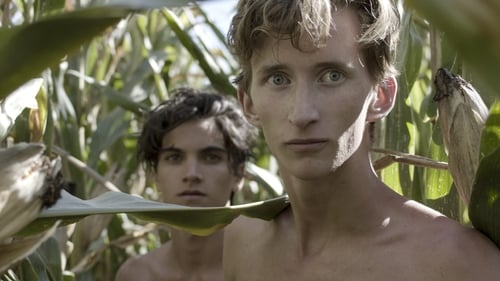
Self (archive footage) (uncredited)
A unique chance to explore Pier Paolo Pasolini's youth through the voice and the body of his direct cousin, writer and poet Nico Naldini.
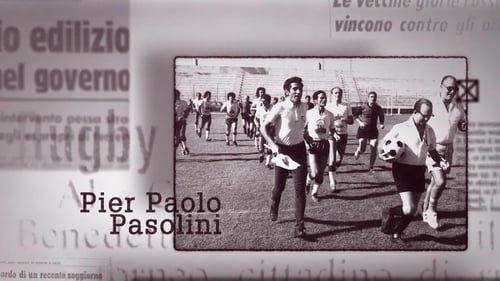
On September 14, 1975, Pier Paolo Pasolini played his last game of football, before his death, in San Benedetto del Tronto. “The last match of Pasolini” starts from a pretext of a football game, to tell a historical period that was fundamental for the whole of Italy, with its contradictions and tragedies, through an apparently playful vision of Pasolini, but that allows us to understand better the importance of the Italian poet and director.
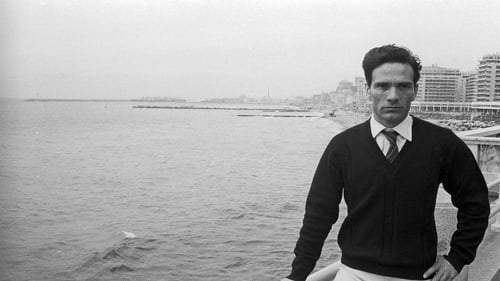
Himself (archive footage)
In the summer of 1959, as a correspondent for “Successo” magazine, Pasolini traveled along the Italian coast. In 1963, he documented Italian sex behavior, explained in “Love Meetings,” a 1964 film. In the winter of 1970-71, he witnessed the plight of the most impoverished Italian population and the innocents who suffered the boot of state power. After these three journeys, he concluded that Italian society had changed dramatically for the worse throughout all those years.


A documentary that recounts the impressively lucid visions and gazes with which Pasolini described and experienced the lands from his Casarsa eastward, through Idria, the Grado lagoon and finally Istria. The border, understood as a physical, historical and geographic but also metaphorical limit, is an interesting key to recount Pasolini's life: a journey that allows us to tell some lesser-known sides of the life of a great intellectual of the last century, who with keen anticipation glimpsed profound truths about the cultural and social changes taking place.

Interactive documentary about Pier Paolo Pasolini.

Se stesso
A journey back through Dacia Maraini's and her trips around the world with her close friends cinema director Pier Paolo Pasolini and opera singer Maria Callas. An in-depth story of this fascinating woman's life. Maraini's memories come alive through personal photographs taken on the road as well as her own Super 8 films shot almost thirty years ago.

Self (archive)
This elegiac essay explores the year leading up to Pier Paolo Pasolini's murder in 1975. Through staging scenes from his last, unfinished novel, to exploring his polemical essays, and his first and last film, this experimental biography documents the final words of one of the most important filmmakers of the 20th century.

Editor
Segundo o diretor, "uma hipótese de reconstrução" do filme original de Pasolini, incluindo trechos cortados em 1963.

Writer
Segundo o diretor, "uma hipótese de reconstrução" do filme original de Pasolini, incluindo trechos cortados em 1963.

Self (archive footage)
Segundo o diretor, "uma hipótese de reconstrução" do filme original de Pasolini, incluindo trechos cortados em 1963.

Director
Segundo o diretor, "uma hipótese de reconstrução" do filme original de Pasolini, incluindo trechos cortados em 1963.

Self (archive footage)
Based upon Vincenzoni's biography, "Pane e cinema", the documentary traces the story of the screen play writer who invented many stories that became blockbusters throughout the world.

The story of La Rabbia by Pier Paolo Pasolini and Giovanni Guareschi, a movie lost in the archives of a laboratory in Rome, and recently re-discovered.

Self (archive footage)
This revealing documentary from director Philippe Kohly examines the storied life of renowned soprano Maria Callas, from her troubled childhood in New York City to her scandal-laden but triumphant international career in opera. Featuring archival interviews with Callas herself and footage of contemporaries such as her lover Aristotle Onassis, this celebration of "La Divina" pays tribute to her enduring legacy some three decades after her death.
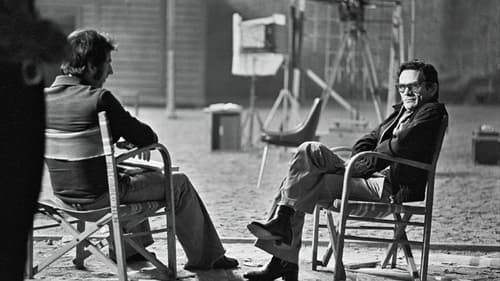
Se stesso
We are on the set of "Salò or the 120 days of Sodom". Pasolini lets a small camera team led by the journalist Gideon Bachmann follow him around engaging him in a long and extraordinary interview/conversation. The interview turns into a long, clear-sighted and violent attack on society that accompanies photos of the set in a surprising juxtaposition of film and reality, revealing Pasolini's metaphorical portrait of modernity.

Interviewee (archive)
Documentary about the making of Pier Paolo Pasolini's The Canterbury Tales (1972), and particularly focusing on the many edits and cut scenes that were made before the film's release.

A sequence of unpublished photographs by Deborah Beer taken during the filming of the torture scenes on the set of "Salo, or the 120 Days of Sodom" is accompanied by the voice - recorded by Gideon Bachmann - of Pier Paolo Pasolini who directs the actors: a portrait of the director and his way of working that testifies its determined and passionate “filmmaking"

Interviewee
A documentary featuring archival footage of Pasolini discussing his views on language, film, and modern society.

Some of the scenes cut from the final editing of Medea by Pier Paolo Pasolini, fortunately found by L’Officina - a historic Roman film club born in the 1970s - on the initiative of Cinemazero in Pordenone have been preserved and digitized at the Cineteca del Friuli. These materials, with the care of the Pasolini scholar Luciano De Giusti, have been reassembled, accompanied by texts / readings and original music by Paolo Corberi: here are the "Visions of the Medea (traces of a dreamed film)", now a very important document to reconstruct the creative process of production and reliving the poetic / lyrical aura of the film's protagonists and places, including the lagoon of Grado (GO).

A thirty-three-minute documentary featuring interviews with director Pier Paolo Pasolini, actor-filmmaker Jean-Claude Biette, and Pasolini friend Ninetto Davoli.

Self (archive footage)
It is a chronological compilation of film clips, awards ceremonies and brief period interviews gathered by journalist Sandro Lai.

Archive footage

Self (archive footage)
Federico Fellini was one of the most individual and thought provoking directors who based most of his films upon his own reflections, dreams, life events and fantasies, who did not convey any special message for humanity but regarded cinema simply as entertainment. Is there an answer to everything? Can it possibly be? If yes, then life can no longer be so curious, so dynamic, so creative...

Book
Adapted from an autobiographical book by Pier Paolo Pasolini.

Himself
A documentary about the Italian cinema as art form and industry.

Short Story
Fausto and Gilda who are married for a long time and love themselves deeply. But Gilda dies leaving Fausto alone with their 8-year-old daughter and a governess. Being shaken, he retreats to his country house. His female doctor is the only one who visits him. He starts being plagued every night by wet dreams, visions and hallucinations of some women and his wife, who insistently asks him to join him. After some time, Fausto can't distinguish any longer what is reality or dream.

Screenplay

Self (archive footage)
Traces the life of Anna Magnani, her creations, her successes, her triumphs, her boycotted career, her nonconformism, her anxieties, her generosity ... Punctuated with photos that tell her career in theater and cinema, Extracts of films, this documentary portrait also gives the floor to his friends and relatives, from Roberto Rossellini to Marcello Mastroianni, through Federico Fellini.

Lui-même

Director
Pasolini parte da obra de Sade e revisita o episódio histórico da República de Salò para apresentar sua visão sobre o poder, a sexualidade, o conformismo e a juventude italiana dos anos 1970, em um filme de quatro partes: Ante-Inferno, Círculo das Manias, Círculo da Merda e uma última, Círculo de Sangue.

Writer
Pasolini parte da obra de Sade e revisita o episódio histórico da República de Salò para apresentar sua visão sobre o poder, a sexualidade, o conformismo e a juventude italiana dos anos 1970, em um filme de quatro partes: Ante-Inferno, Círculo das Manias, Círculo da Merda e uma última, Círculo de Sangue.
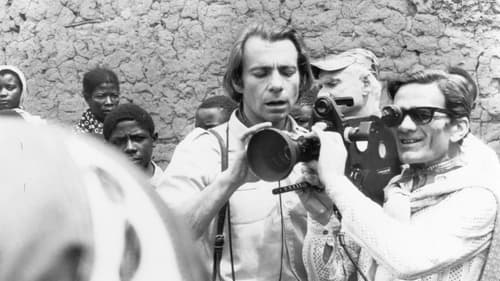
Self (uncredited)
Um documentário sobre um filme por vir. Pasolini reúne o material de pesquisa que rodou na África para fazer uma adaptação de Ésquilo, e expõe em over sua tese de que o continente descolonizado está submetido ao destino de ser uma grandiosa tragédia grega.

Editor
Um documentário sobre um filme por vir. Pasolini reúne o material de pesquisa que rodou na África para fazer uma adaptação de Ésquilo, e expõe em over sua tese de que o continente descolonizado está submetido ao destino de ser uma grandiosa tragédia grega.

Writer
Um documentário sobre um filme por vir. Pasolini reúne o material de pesquisa que rodou na África para fazer uma adaptação de Ésquilo, e expõe em over sua tese de que o continente descolonizado está submetido ao destino de ser uma grandiosa tragédia grega.

Director
Um documentário sobre um filme por vir. Pasolini reúne o material de pesquisa que rodou na África para fazer uma adaptação de Ésquilo, e expõe em over sua tese de que o continente descolonizado está submetido ao destino de ser uma grandiosa tragédia grega.

Writer
Pasolini faz um apelo a UNESCO, através desse filme, para que a cidade de Sana'a, capital do Yemen, seja preservada.

Narrator (voice)
Pasolini faz um apelo a UNESCO, através desse filme, para que a cidade de Sana'a, capital do Yemen, seja preservada.

Director
Pasolini faz um apelo a UNESCO, através desse filme, para que a cidade de Sana'a, capital do Yemen, seja preservada.

Writer
Capítulo final da trilogia de Pasolini inspirada em contos clássicos do erotismo, que se iniciou com "O Decameron" e "Os Contos de Canterbury." Aqui a história é centrada num jovem que se apaixona por uma escrava. Um homem começa uma viagem à procura de sua amante, uma bela escrava chamada Zumurrud, que foi raptada por um ser de olhos azuis. No caminho de sua longa busca, seu caminho vai cruzar com uma série de outros personagens envolvidos em traições, cobiças e desejos.

Director
Capítulo final da trilogia de Pasolini inspirada em contos clássicos do erotismo, que se iniciou com "O Decameron" e "Os Contos de Canterbury." Aqui a história é centrada num jovem que se apaixona por uma escrava. Um homem começa uma viagem à procura de sua amante, uma bela escrava chamada Zumurrud, que foi raptada por um ser de olhos azuis. No caminho de sua longa busca, seu caminho vai cruzar com uma série de outros personagens envolvidos em traições, cobiças e desejos.

Himself
Documentary about the Italian cities Orte and Sabaudia.
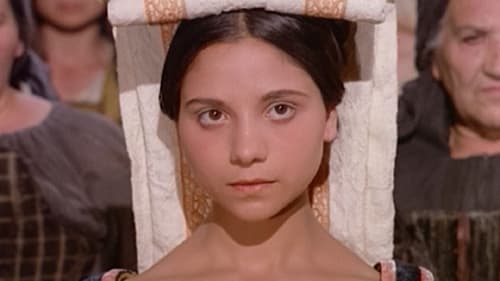
Writer
Locked up in prison and awaiting execution, bored young vagabonds Bernardino and Mammone pass their time competing in a vulgar storytelling competition, relating indecent accounts about castration, unsavory testicles and an atypical threesome. Not intended for the faint of heart, this audacious piece of moviemaking focuses on tales of jealousy, murder and uncontrollable desires.
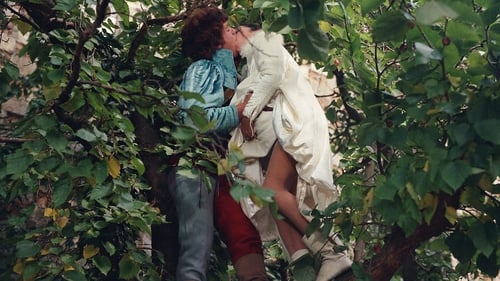
Music Supervisor
Segunda parte da Trilogia da Vida do aclamado diretor italiano Pier Paolo Pasolini, o longa é baseado nas obscenas histórias de Geoffrey Chaucer do século XIV. Mergulhando com prazer em alguns dos mais perversos e lascivos contos, Pasolini celebra de forma ardente quase toda forma imaginável de ato sexual com um humor rico, rude e visual mágico. Para completar, Pasolini faz uma representação de inferno que teria deixado Hieronymos Bosch orgulhoso.

Screenplay
Segunda parte da Trilogia da Vida do aclamado diretor italiano Pier Paolo Pasolini, o longa é baseado nas obscenas histórias de Geoffrey Chaucer do século XIV. Mergulhando com prazer em alguns dos mais perversos e lascivos contos, Pasolini celebra de forma ardente quase toda forma imaginável de ato sexual com um humor rico, rude e visual mágico. Para completar, Pasolini faz uma representação de inferno que teria deixado Hieronymos Bosch orgulhoso.

Geoffrey Chaucer
Segunda parte da Trilogia da Vida do aclamado diretor italiano Pier Paolo Pasolini, o longa é baseado nas obscenas histórias de Geoffrey Chaucer do século XIV. Mergulhando com prazer em alguns dos mais perversos e lascivos contos, Pasolini celebra de forma ardente quase toda forma imaginável de ato sexual com um humor rico, rude e visual mágico. Para completar, Pasolini faz uma representação de inferno que teria deixado Hieronymos Bosch orgulhoso.

Director
Segunda parte da Trilogia da Vida do aclamado diretor italiano Pier Paolo Pasolini, o longa é baseado nas obscenas histórias de Geoffrey Chaucer do século XIV. Mergulhando com prazer em alguns dos mais perversos e lascivos contos, Pasolini celebra de forma ardente quase toda forma imaginável de ato sexual com um humor rico, rude e visual mágico. Para completar, Pasolini faz uma representação de inferno que teria deixado Hieronymos Bosch orgulhoso.

In this movie, director Volker Koch wants to reveal "petty-bourgeois fixations of consciousness and late capitalist myths of happiness". The protagonists: an American hustler, a drama student, a Munich waitress and her boyfriend who hope for money, a career and luck from a trip to Rome together.
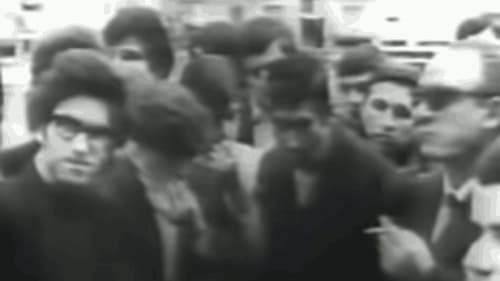
Director
On December 12th, 1969 a bomb went off at the Piazza Fontana in Milan that killed 16 people and injured 84. Railway worker and anarchist activist Giuseppe Pinelli was picked up, along with other anarchists, for questioning regarding the attack. He was held and interrogated for three days, longer than Italian law specified that people could be held without seeing a judge. Just before midnight on December 15, 1969 Pinelli was seen to fall to his death from a fourth floor window of the Milan police station. Although officially deemed a suicide, the reporter who watched the fall from the street maintained that he was pushed. Three police officers interrogating Pinelli were put under investigation in 1971 for murder but charges were dropped because of lack of evidence.

Idea
On December 12th, 1969 a bomb went off at the Piazza Fontana in Milan that killed 16 people and injured 84. Railway worker and anarchist activist Giuseppe Pinelli was picked up, along with other anarchists, for questioning regarding the attack. He was held and interrogated for three days, longer than Italian law specified that people could be held without seeing a judge. Just before midnight on December 15, 1969 Pinelli was seen to fall to his death from a fourth floor window of the Milan police station. Although officially deemed a suicide, the reporter who watched the fall from the street maintained that he was pushed. Three police officers interrogating Pinelli were put under investigation in 1971 for murder but charges were dropped because of lack of evidence.
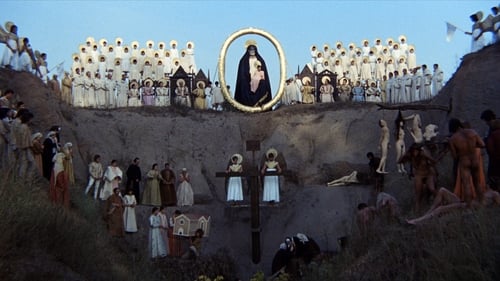
Allievo di Giotto
O legendário diretor italiano Pier Paolo Pasolini nos traz nove contos exuberantes neste filme. Baseado nos eternos clássicos de Boccaccio Decameron é uma "irreverente travessura"! Freiras devassas que realizam "milagres" sexuais, uma esposa traiçoeira com habilidade para negócios, um artista tuberculoso à beira da morte que tenta trapacear com o Céu, jovens amantes apanhados com as calças na mão, um criado que perde a cabeça por amor e um simplório fazendeiro que tenta transformar sua esposa numa égua. Estas são apenas algumas das histórias que Pasolini traz à vida com maestria.

Writer
O legendário diretor italiano Pier Paolo Pasolini nos traz nove contos exuberantes neste filme. Baseado nos eternos clássicos de Boccaccio Decameron é uma "irreverente travessura"! Freiras devassas que realizam "milagres" sexuais, uma esposa traiçoeira com habilidade para negócios, um artista tuberculoso à beira da morte que tenta trapacear com o Céu, jovens amantes apanhados com as calças na mão, um criado que perde a cabeça por amor e um simplório fazendeiro que tenta transformar sua esposa numa égua. Estas são apenas algumas das histórias que Pasolini traz à vida com maestria.

Director
O legendário diretor italiano Pier Paolo Pasolini nos traz nove contos exuberantes neste filme. Baseado nos eternos clássicos de Boccaccio Decameron é uma "irreverente travessura"! Freiras devassas que realizam "milagres" sexuais, uma esposa traiçoeira com habilidade para negócios, um artista tuberculoso à beira da morte que tenta trapacear com o Céu, jovens amantes apanhados com as calças na mão, um criado que perde a cabeça por amor e um simplório fazendeiro que tenta transformar sua esposa numa égua. Estas são apenas algumas das histórias que Pasolini traz à vida com maestria.
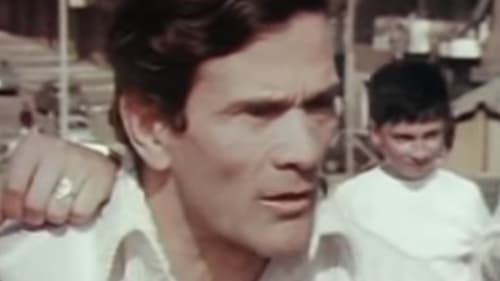
Documentary about Italian movie director Pier Paolo Pasolini, with interviews with some of his actors and friends.
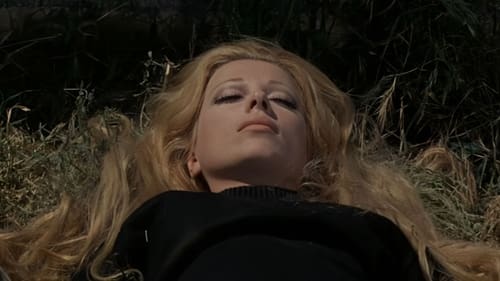
Supervising Technical Director
Two anarchistic brothers live by petty thievery and try to recover from their Catholic upbringing. Bandiera and Rabbino were children when they pushed their drunk of a father out of a window for killing their pet sheep. When a girl is raped by her father, she is brought by young "rescuers" to the home of the two brothers who then watch their friends take advantage of her sexually. The brothers take her in, and the three live happy and celibate if not uneventful lives until the brother's are sent to jail for stealing.

Screenplay
Two anarchistic brothers live by petty thievery and try to recover from their Catholic upbringing. Bandiera and Rabbino were children when they pushed their drunk of a father out of a window for killing their pet sheep. When a girl is raped by her father, she is brought by young "rescuers" to the home of the two brothers who then watch their friends take advantage of her sexually. The brothers take her in, and the three live happy and celibate if not uneventful lives until the brother's are sent to jail for stealing.

Story
Two anarchistic brothers live by petty thievery and try to recover from their Catholic upbringing. Bandiera and Rabbino were children when they pushed their drunk of a father out of a window for killing their pet sheep. When a girl is raped by her father, she is brought by young "rescuers" to the home of the two brothers who then watch their friends take advantage of her sexually. The brothers take her in, and the three live happy and celibate if not uneventful lives until the brother's are sent to jail for stealing.

Writer
Em seu único papel no cinema, a diva María Callas vive a feiticeira Medéia, que mata o próprio irmão para fugir com o amado, Jasão, que roubara o velo de ouro. Anos mais tarde, Jasão a abandona, para se casar com a jovem e bela filha do Rei Creonte. Indignada, Medéia planeja uma terrível vingança contra Jasão.

Director
Em seu único papel no cinema, a diva María Callas vive a feiticeira Medéia, que mata o próprio irmão para fugir com o amado, Jasão, que roubara o velo de ouro. Anos mais tarde, Jasão a abandona, para se casar com a jovem e bela filha do Rei Creonte. Indignada, Medéia planeja uma terrível vingança contra Jasão.
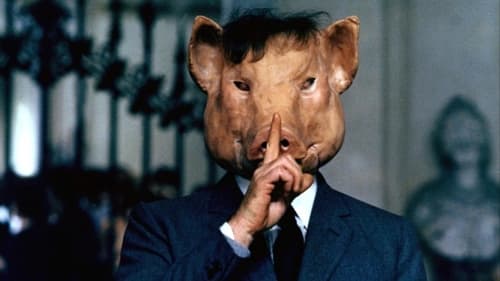
Writer
A história de um canibal em um páramo medieval está entrelaçada com a do filho de um ex-industrial nazista na Alemanha moderna. O jovem alemão, que se sente mais atraído por porcos do que por sua noiva, e o canibal se tornam vítimas sacrificiais de suas diferentes sociedades.

Director
A história de um canibal em um páramo medieval está entrelaçada com a do filho de um ex-industrial nazista na Alemanha moderna. O jovem alemão, que se sente mais atraído por porcos do que por sua noiva, e o canibal se tornam vítimas sacrificiais de suas diferentes sociedades.

Screenplay
A beautiful smiling guy's walking on the streets of a city, bringing with him a large paper poppy. The boy is the goodness and innocence of youth, which is soon cut short by human wickedness.

Director
A beautiful smiling guy's walking on the streets of a city, bringing with him a large paper poppy. The boy is the goodness and innocence of youth, which is soon cut short by human wickedness.

Screenplay
Retomando o tema de Édipo Rei da "Culpa da Inocência," o cândido personagem Riccetto caminha pela Via Nazionale alheio às desigualdades, guerras e conflitos do entorno.

Director
Retomando o tema de Édipo Rei da "Culpa da Inocência," o cândido personagem Riccetto caminha pela Via Nazionale alheio às desigualdades, guerras e conflitos do entorno.
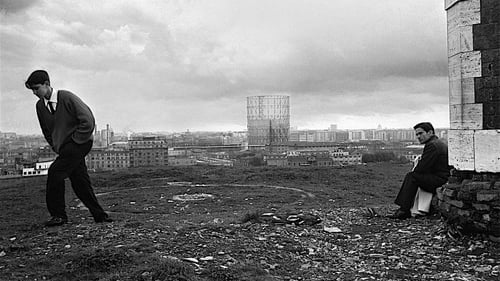
Writer
Five short stories with contemporary settings. In New York, people are indifferent to derelicts sleeping on sidewalks, to a woman's assault in front of an apartment building, and to a couple injured in a car crash. A man, stripped of his identity, dies in bed with actors expressing his agony. A cheerful, innocent young man walking a city street in a time of war pays a price for this innocence. A couple talks about cinema while it watches another couple talk of love and truth on the eve of one character's return to Cuba. Striking students take over a university classroom; an argument follows about revolution or incremental change.

Director
Five short stories with contemporary settings. In New York, people are indifferent to derelicts sleeping on sidewalks, to a woman's assault in front of an apartment building, and to a couple injured in a car crash. A man, stripped of his identity, dies in bed with actors expressing his agony. A cheerful, innocent young man walking a city street in a time of war pays a price for this innocence. A couple talks about cinema while it watches another couple talk of love and truth on the eve of one character's return to Cuba. Striking students take over a university classroom; an argument follows about revolution or incremental change.

Writer
The tragic and self-destructive sexual battle between a man and his wife. A drama for the desperate struggle of those who are different against the normality that rejects the margins. The couple is preparing to consume a relationship of extreme sadomasochism. Recorded theatre production.

Director
The tragic and self-destructive sexual battle between a man and his wife. A drama for the desperate struggle of those who are different against the normality that rejects the margins. The couple is preparing to consume a relationship of extreme sadomasochism. Recorded theatre production.

Screenplay
Em Milão a vida de uma rica família burguesa é totalmente modificada por um misterioso visitante, que seduz a empregada, o filho, a mãe, a filha e finalmente o pai. Além disto, tem um contato intelectual com todos eles, convencendo-os da futilidade da existência, e após cumprir seu objetivo parte em poucos dias. Após sua ida ninguém da família consegue continuar vivendo da mesma forma.

Director
Em Milão a vida de uma rica família burguesa é totalmente modificada por um misterioso visitante, que seduz a empregada, o filho, a mãe, a filha e finalmente o pai. Além disto, tem um contato intelectual com todos eles, convencendo-os da futilidade da existência, e após cumprir seu objetivo parte em poucos dias. Após sua ida ninguém da família consegue continuar vivendo da mesma forma.

Writer
A 1968 short documentary film by Pier Paolo Pasolini where he visits India in the search of a king who could give up his body to feed a starving tiger.

Self
A 1968 short documentary film by Pier Paolo Pasolini where he visits India in the search of a king who could give up his body to feed a starving tiger.

Director
A 1968 short documentary film by Pier Paolo Pasolini where he visits India in the search of a king who could give up his body to feed a starving tiger.

Writer
Seis curtas em que são apresentadas histórias interessantes, com críticas aos costumes da sociedade em diferentes aspectos. Abrangem, a literatura infantil, a cabeleira masculina, o trânsito, as visitas de soberanos às antigas colônias, a falsidade e o ciúme.

Director
Seis curtas em que são apresentadas histórias interessantes, com críticas aos costumes da sociedade em diferentes aspectos. Abrangem, a literatura infantil, a cabeleira masculina, o trânsito, as visitas de soberanos às antigas colônias, a falsidade e o ciúme.

Writer
Em um teatro, diante de um público popular, é encenada uma versão cômica da tragédia "Otelo," de Shakespeare, em que atores reais fazem papel de marionetes. O invejoso Iago, alferes de Otelo, mente ao seu senhor. Diz que sua amada mulher, Desdêmona, o havia traído com Cássio, soldado de sua confiança. Otelo não se conforma e quer vingança. O público não aceita o final da história, invade o palco e reverte toda a situação.

Director
Em um teatro, diante de um público popular, é encenada uma versão cômica da tragédia "Otelo," de Shakespeare, em que atores reais fazem papel de marionetes. O invejoso Iago, alferes de Otelo, mente ao seu senhor. Diz que sua amada mulher, Desdêmona, o havia traído com Cássio, soldado de sua confiança. Otelo não se conforma e quer vingança. O público não aceita o final da história, invade o palco e reverte toda a situação.
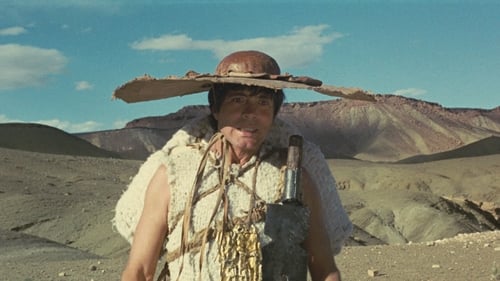
High Priest (uncredited)
Édipo Rei começa em 1920 na Itália, relatando um nascimento, fruto de um caso entre uma burguesa e um oficial militar. O filme se desenvolve retratando o mito de Édipo sobre parricídio e incesto. O epílogo mostra Édipo tocando sua flauta na agitação urbana da Bolonha dos anos 60.

Writer
Édipo Rei começa em 1920 na Itália, relatando um nascimento, fruto de um caso entre uma burguesa e um oficial militar. O filme se desenvolve retratando o mito de Édipo sobre parricídio e incesto. O epílogo mostra Édipo tocando sua flauta na agitação urbana da Bolonha dos anos 60.

Director
Édipo Rei começa em 1920 na Itália, relatando um nascimento, fruto de um caso entre uma burguesa e um oficial militar. O filme se desenvolve retratando o mito de Édipo sobre parricídio e incesto. O epílogo mostra Édipo tocando sua flauta na agitação urbana da Bolonha dos anos 60.

Father Juan
O único sobrevivente do massacre de sua família e seu povo, por um predador itinerante e sua ambiciosa mulher, um menino ferido carregará por toda sua vida marcas profundas que jamais irão apagar de sua memória. Anos mais tarde, já homem e com muita sede de vingança, Réquiem sai em busca de Fergusson, o exterminador de sua família. Ele terá a oportunidade de ficar face a face com aquele que deverá lhe prestar contas.
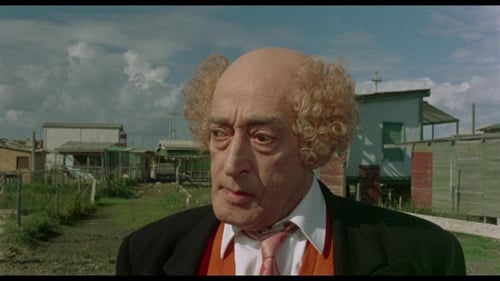
Story
Cinco histórias diferentes que tem como tema a mulher na sociedade.

Screenplay
Cinco histórias diferentes que tem como tema a mulher na sociedade.

Writer
Ciancicato Miao and his son, after the death of his wife and mother by mushroom poisoning, are dedicated to find her replacement and have no luck until they find a mysterious deaf mute green-haired woman.

Director
Ciancicato Miao and his son, after the death of his wife and mother by mushroom poisoning, are dedicated to find her replacement and have no luck until they find a mysterious deaf mute green-haired woman.

Director
Cinco histórias diferentes que tem como tema a mulher na sociedade.

Self
In this documentary, giants of italian cinema such as Rossellini, De Sica, Fellini and Zavattini talk about the importance of cinema after WW2, and about huge moments of social rebellion. This movie gives the floor to the creators of italian neorealism.

Himself
Portrait of Pier Paolo Pasolini and his literary and cinematographic activity in the proletarian Rome.

Himself
Ezra Pound, an acclaimed modern American poet living in Rapallo, was tried for treason because of his radio broadcasts extolling Mussolini. This is Pasolini's interview with him.

Director
Ezra Pound, an acclaimed modern American poet living in Rapallo, was tried for treason because of his radio broadcasts extolling Mussolini. This is Pasolini's interview with him.
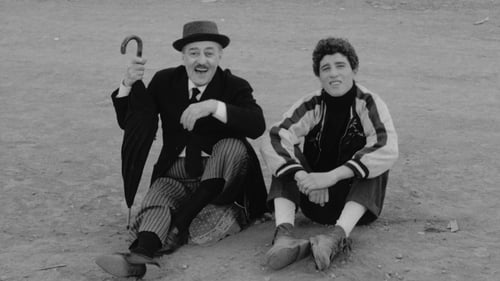
Story
Innocenti Totò e seu filho Innocenti Ninetto estão à deriva em uma estrada na Itália. No meio do caminho, eles encontram um corvo que pode falar. O trio segue então uma longa viagem, cheios de discussões que debatem a ideologia do socialismo.

Screenplay
Innocenti Totò e seu filho Innocenti Ninetto estão à deriva em uma estrada na Itália. No meio do caminho, eles encontram um corvo que pode falar. O trio segue então uma longa viagem, cheios de discussões que debatem a ideologia do socialismo.

Director
Innocenti Totò e seu filho Innocenti Ninetto estão à deriva em uma estrada na Itália. No meio do caminho, eles encontram um corvo que pode falar. O trio segue então uma longa viagem, cheios de discussões que debatem a ideologia do socialismo.

Writer
Em 1963, acompanhado por um fotógrafo de noticiários fílmicos e um padre católico, Pier Paolo Pasolini viajou para a Palestina para investigar a possibilidade de filmar o épico bíblico O Evangelho Segundo São Mateus em seus locais históricos aproximados. Editado pelo produtor do filme para potenciais financiadores e distribuidores, "Locações na Palestina" apresenta comentários semi-improvisados de Pasolini como sua única trilha sonora. Ao viajarmos de aldeia em aldeia, ouvimos as reflexões idiossincráticas de Pasolini sobre os ensinamentos de Cristo e testemunhamos sua crescente decepção com as pessoas e paisagens que ele vê diante de si. Israel, ele lamenta, é moderna demais. Os palestinos, muito infelizes; seria impossível acreditar que os ensinamentos de Jesus tivessem alcançado estes rostos. O Evangelho Segundo São Mateus acabou sendo filmado no sul da Itália.

Self (uncredited)
Em 1963, acompanhado por um fotógrafo de noticiários fílmicos e um padre católico, Pier Paolo Pasolini viajou para a Palestina para investigar a possibilidade de filmar o épico bíblico O Evangelho Segundo São Mateus em seus locais históricos aproximados. Editado pelo produtor do filme para potenciais financiadores e distribuidores, "Locações na Palestina" apresenta comentários semi-improvisados de Pasolini como sua única trilha sonora. Ao viajarmos de aldeia em aldeia, ouvimos as reflexões idiossincráticas de Pasolini sobre os ensinamentos de Cristo e testemunhamos sua crescente decepção com as pessoas e paisagens que ele vê diante de si. Israel, ele lamenta, é moderna demais. Os palestinos, muito infelizes; seria impossível acreditar que os ensinamentos de Jesus tivessem alcançado estes rostos. O Evangelho Segundo São Mateus acabou sendo filmado no sul da Itália.

Director
Em 1963, acompanhado por um fotógrafo de noticiários fílmicos e um padre católico, Pier Paolo Pasolini viajou para a Palestina para investigar a possibilidade de filmar o épico bíblico O Evangelho Segundo São Mateus em seus locais históricos aproximados. Editado pelo produtor do filme para potenciais financiadores e distribuidores, "Locações na Palestina" apresenta comentários semi-improvisados de Pasolini como sua única trilha sonora. Ao viajarmos de aldeia em aldeia, ouvimos as reflexões idiossincráticas de Pasolini sobre os ensinamentos de Cristo e testemunhamos sua crescente decepção com as pessoas e paisagens que ele vê diante de si. Israel, ele lamenta, é moderna demais. Os palestinos, muito infelizes; seria impossível acreditar que os ensinamentos de Jesus tivessem alcançado estes rostos. O Evangelho Segundo São Mateus acabou sendo filmado no sul da Itália.
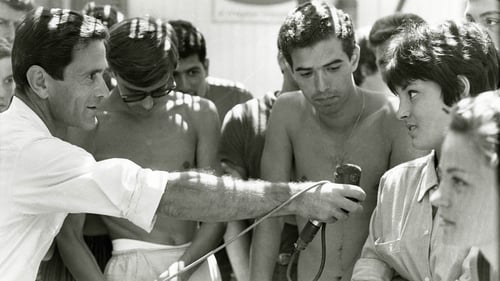
Self - Interviewer (uncredited)
Pier Paolo Pasolini viajou por toda a Itália, de fábricas a praias, entrevistando transeuntes sobre suas atitudes em relação ao sexo. Com o microfone em mão, ele os questiona sobre diversos tópicos: a importância do sexo na vida cotidiana, prostituição, homossexualidade, a legalização do divórcio.

Director
Pier Paolo Pasolini viajou por toda a Itália, de fábricas a praias, entrevistando transeuntes sobre suas atitudes em relação ao sexo. Com o microfone em mão, ele os questiona sobre diversos tópicos: a importância do sexo na vida cotidiana, prostituição, homossexualidade, a legalização do divórcio.
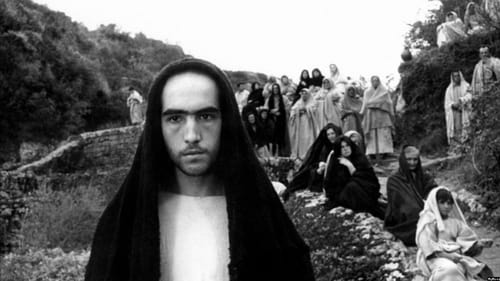
Writer
Partindo da Imaculada Conceição, a vida de Cristo é reconstituída segundo o Evangelho de São Mateus. Quando Jesus viaja pela Palestina com os seus discípulos para espalhar a palavra de Deus, os romanos conspiram para que ele seja silenciado, resultando na sua prisão, crucificação, e ressurreição.

Director
Partindo da Imaculada Conceição, a vida de Cristo é reconstituída segundo o Evangelho de São Mateus. Quando Jesus viaja pela Palestina com os seus discípulos para espalhar a palavra de Deus, os romanos conspiram para que ele seja silenciado, resultando na sua prisão, crucificação, e ressurreição.
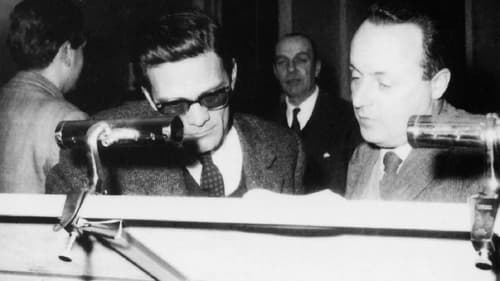
Writer
Documentary footage (from the 1950s) and accompanying commentary to attempt to answer the existential question, Why are our lives characterized by discontent, anguish, and fear? The film is in two completely separate parts, and the directors of these respective sections, left-wing Pier Paolo Pasolini and conservative Giovanni Guareschi, offer the viewer contrasting analyses of and prescriptions for modern society. Part I, by Pasolini, is a denunciation of the offenses of Western culture, particularly those against colonized Africa. It is at the same time a chronicle of the liberation and independence of the former African colonies, portraying these peoples as the new protagonists of the world stage, holding up Marxism as their "salvation", and suggesting that their "innocent ferocity" will be the new religion of the era. Guareschi's part, by contrast, constitutes a defense of Western civilization and a word of hope, couched in traditional Christian terms, for man's future.

Editor
Documentary footage (from the 1950s) and accompanying commentary to attempt to answer the existential question, Why are our lives characterized by discontent, anguish, and fear? The film is in two completely separate parts, and the directors of these respective sections, left-wing Pier Paolo Pasolini and conservative Giovanni Guareschi, offer the viewer contrasting analyses of and prescriptions for modern society. Part I, by Pasolini, is a denunciation of the offenses of Western culture, particularly those against colonized Africa. It is at the same time a chronicle of the liberation and independence of the former African colonies, portraying these peoples as the new protagonists of the world stage, holding up Marxism as their "salvation", and suggesting that their "innocent ferocity" will be the new religion of the era. Guareschi's part, by contrast, constitutes a defense of Western civilization and a word of hope, couched in traditional Christian terms, for man's future.

Director
Documentary footage (from the 1950s) and accompanying commentary to attempt to answer the existential question, Why are our lives characterized by discontent, anguish, and fear? The film is in two completely separate parts, and the directors of these respective sections, left-wing Pier Paolo Pasolini and conservative Giovanni Guareschi, offer the viewer contrasting analyses of and prescriptions for modern society. Part I, by Pasolini, is a denunciation of the offenses of Western culture, particularly those against colonized Africa. It is at the same time a chronicle of the liberation and independence of the former African colonies, portraying these peoples as the new protagonists of the world stage, holding up Marxism as their "salvation", and suggesting that their "innocent ferocity" will be the new religion of the era. Guareschi's part, by contrast, constitutes a defense of Western civilization and a word of hope, couched in traditional Christian terms, for man's future.

Screenplay
Quatro curtas-metragens de quatro diretores diferentes lidando com princípios da vida moderna.

Director
Quatro curtas-metragens de quatro diretores diferentes lidando com princípios da vida moderna.
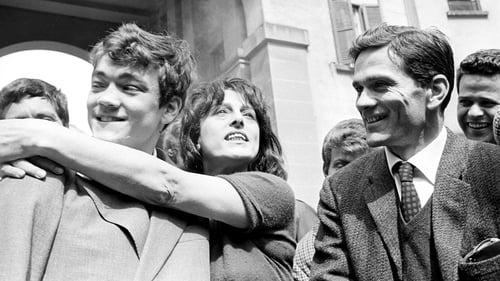
Story
After years spent working as a prostitute in her Italian village, middle-aged Mamma Roma has saved enough money to buy herself a fruit stand so that she can have a respectable middle-class life and reestablish contact with the 16-year-old son she abandoned when he was an infant. But her former pimp threatens to expose her sordid past, and her troubled son seems destined to fall into a life of crime and violence.

Screenplay
After years spent working as a prostitute in her Italian village, middle-aged Mamma Roma has saved enough money to buy herself a fruit stand so that she can have a respectable middle-class life and reestablish contact with the 16-year-old son she abandoned when he was an infant. But her former pimp threatens to expose her sordid past, and her troubled son seems destined to fall into a life of crime and violence.

Director
After years spent working as a prostitute in her Italian village, middle-aged Mamma Roma has saved enough money to buy herself a fruit stand so that she can have a respectable middle-class life and reestablish contact with the 16-year-old son she abandoned when he was an infant. But her former pimp threatens to expose her sordid past, and her troubled son seems destined to fall into a life of crime and violence.
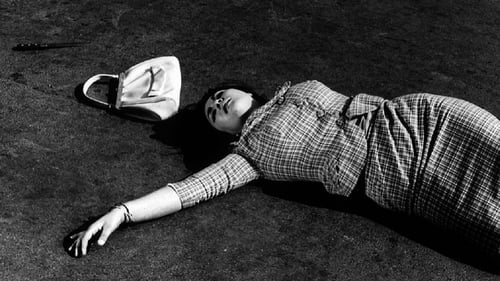
Story
Roman police detectives interrogate a series of potential perpetrators in their struggle to determine whom to arrest for the brutal murder of a beautiful prostitute whose body is discovered in a park on the day of a torrential rainstorm. One by one, the prime suspects -- girl-crazy teenager Nino, pickpocket Canticchia, a soldier on leave, a tourist and a pimp -- recount the events of the day to the police, each insisting he is innocent.
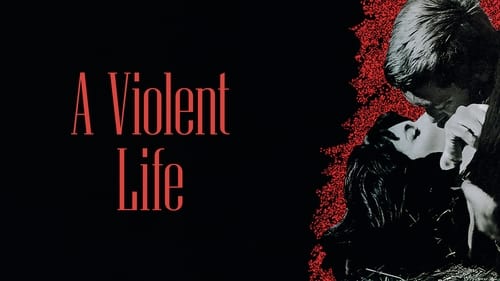
Novel
Tommaso Puzzilli is a boy who grew up in the suburb of Pietralata outside Rome. Not having a job, Tommaso and his friends are committing crimes to make money.
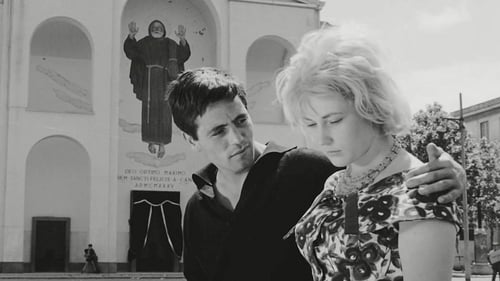
Story
Accattone era um cafetão da periferia pobre de Roma na década de 1960 e vive dos rendimentos ganhos pela sua prostituta Maddalena. Nunca trabalhou um só dia na sua vida e passa o tempo pelos cafés com os seus também ociosos amigos. Quando Maddalena é presa por perjúrio, perde a sua fonte de rendimento e, sem ninguém para o sustentar, começa o seu declínio, chegando a passar fome. Até que conhece a bela e inocente Stella. Tenta iniciá-la na prostituição, mas se apaixona e decide arranjar uma forma de a sustentar com trágicas consequências.[3]

Screenplay
Accattone era um cafetão da periferia pobre de Roma na década de 1960 e vive dos rendimentos ganhos pela sua prostituta Maddalena. Nunca trabalhou um só dia na sua vida e passa o tempo pelos cafés com os seus também ociosos amigos. Quando Maddalena é presa por perjúrio, perde a sua fonte de rendimento e, sem ninguém para o sustentar, começa o seu declínio, chegando a passar fome. Até que conhece a bela e inocente Stella. Tenta iniciá-la na prostituição, mas se apaixona e decide arranjar uma forma de a sustentar com trágicas consequências.[3]

Director
Accattone era um cafetão da periferia pobre de Roma na década de 1960 e vive dos rendimentos ganhos pela sua prostituta Maddalena. Nunca trabalhou um só dia na sua vida e passa o tempo pelos cafés com os seus também ociosos amigos. Quando Maddalena é presa por perjúrio, perde a sua fonte de rendimento e, sem ninguém para o sustentar, começa o seu declínio, chegando a passar fome. Até que conhece a bela e inocente Stella. Tenta iniciá-la na prostituição, mas se apaixona e decide arranjar uma forma de a sustentar com trágicas consequências.[3]
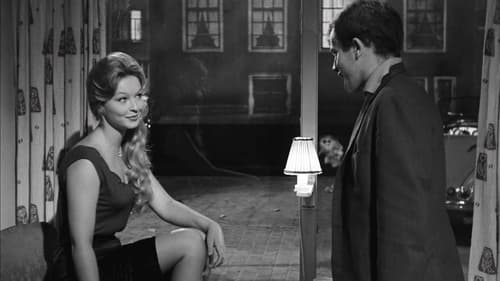
Screenplay
A romantic drama partially set in Amsterdam, this standard tale starts out in a mining area in Holland where conditions are about as rough as they get. Two of the miners, Italians Federico and Vincenzo take off together for the city's red-light district, where the women pose in windows for prospective customers. There the duo meet Else and Carrel who are willing to leave their windows to spend a weekend at a resort with the two men. Soon Else has fallen in love with Vincenzo and the future of the two hookers, as well as the miners, seems to look brighter.

Writer
A group of young thugs decides to spend New Year on the streets of Milan.
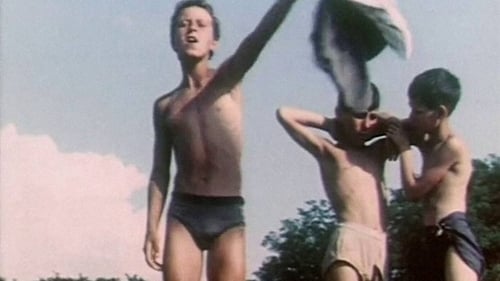
Writer
On a hot summer day, a group of boys of the Roman suburbs play and laugh in one of the many rivers that surround the city. The camera scrutinizes them, approaches them, reveals the gestures and glances, wraps them in a sort of visual dance, while the words of the commentary (entrusted to the poetic sensibility of Pier Paolo Pasolini) narrate the stories, desires, dreams, the future.
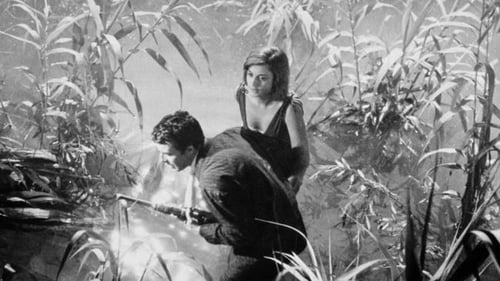
Monco
Alvaro Cosenza, also known as the Hunchback from Quarticciolo, during Rome's occupation by Nazis in 1943, decides to revolt.

Writer
A unique documentary on the traditional dirge in Griko, an ancient language of Salento.
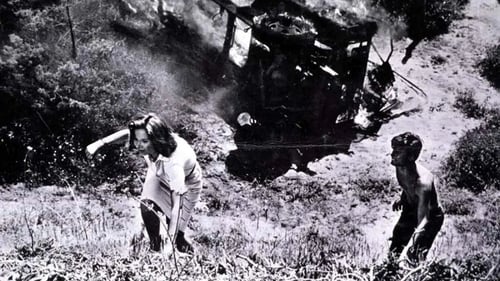
Screenplay
The ironic study of a young man's poignant adventures and sensual adventures...based on "Roman Tales" by Alberto Moravia.

Screenplay
Italy signed the armistice and in the general confusion a corporal decides to bring the tank back from the coast to the barracks.
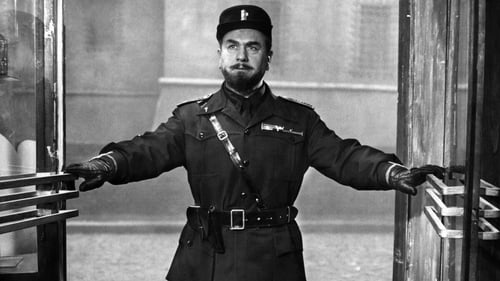
Screenplay
1943. The affair between Anna, unhappily married to wheelchair-bound Pino, and deserter Franco unfolds in foggy Ferrara, intertwining with the power struggle taking place within local Fascist ranks that culminates in a massacre of civilians, including Franco's father – Pino sees it all from his window, but will he tell anyone?
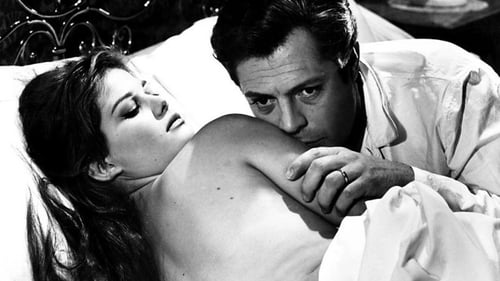
Screenplay
Antonio Magnano apresenta problemas quando ele é incapaz de consumar seu casamento com a bela Barbara Puglisi e sua virilidade é posta em dúvida. Apesar de amar sua linda esposa e serem felizes por um ano, seu problema se torna uma fonte de discórdia para todos os envolvidos. (e 16 - Estimado 16 Anos)
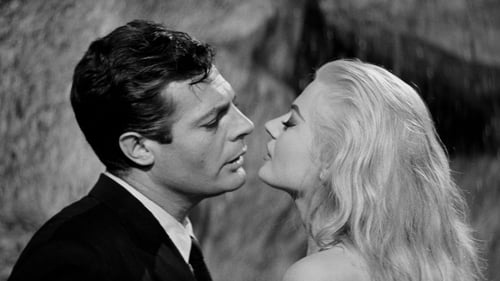
Screenplay
Roma, início dos anos 60. O jornalista Marcello (Marcello Mastroianni em desempenho memorável) vive entre as celebridades, ricos e fotógrafos que lotam a badalada Via Veneto. Neste mundo marcado pelas aparências e por um vazio existencial, frequenta festas, conhece os tipos mais extravagantes e descobre um novo sentido para a vida.

Story
Two young people trickle, steal and exploit prostitutes.

Writer

Self
A four-part documentary series about the Italian director Federico Fellini. Episode 1: His Childhood, His Beginnings; Episode 2: His First Films; Episode 3: His Films with Giulietta Masina; Episode 4: "La dolce vita" and Neorealism.
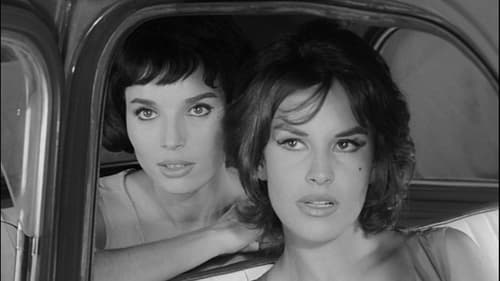
Screenplay
As façanhas de três jovens criminosos romanos são narradas neste drama socialmente consciente. Os jovens cometem crimes mesquinhos o dia inteiro, começando com o roubo de armas e culminando com uma noite com três prostitutas. Depois do prazer, os meninos tentam trapacear as meninas, mas elas são mais espertas do que isso e roubam o dinheiro deles antes. Os malandros então retornam à cidade para mais crimes. As façanhas incluem o assédio de três homossexuais e tentativas de seduzir algumas mulheres. (e 16 - Estimado 16 Anos)

Novel
As façanhas de três jovens criminosos romanos são narradas neste drama socialmente consciente. Os jovens cometem crimes mesquinhos o dia inteiro, começando com o roubo de armas e culminando com uma noite com três prostitutas. Depois do prazer, os meninos tentam trapacear as meninas, mas elas são mais espertas do que isso e roubam o dinheiro deles antes. Os malandros então retornam à cidade para mais crimes. As façanhas incluem o assédio de três homossexuais e tentativas de seduzir algumas mulheres. (e 16 - Estimado 16 Anos)

Writer

Screenplay
In a small Italian town, the local youngsters realize that their youth is coming to an end and marriage will soon follow. They gather together for one last time in an attempt to revive their younger days, but this comes to a dismal conclusion. Gradually it dawns on the group that childhood is over and the next stage in human growth must be faced.

Writer
The life, the problems, the hopes of the ragazzi of the suburbs of Rome. Ignored by the city, these young men spontaneously express their vitality, their violence, their willingness to put themselves at risk. They are at the center of "Ragazzi di vita", the first novel by Pier Paolo Pasolini, author of the text of this documentary.

Screenplay
Giulietta Masina interpreta Cabíria, uma prostituta que ganha a vida nas ruas de Roma em meados anos 50. Ingênua, ela sonha com o amor perfeito e acredita na bondade das pessoas. Por isso, sofre constantemente desilusões. Em suas andanças pela noite romana, ela se envolve com um astro de cinema em crise conjugal e, também, com um contador, que parece amá-la de verdade. Será que o destino só guarda desencantos para a pobre Cabíria?
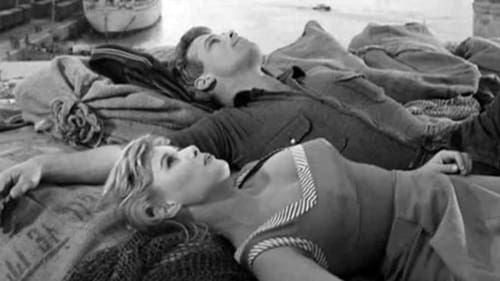
Screenplay
For the 17-year-old Mariza, there is no other house than the train station in Civitavecchia. Here, an orphaned girl lives early after the death of her father, a railwayman; here she earns additionally at the station buffet, selling ice cream to passengers of passing trains. Beautiful and brisk, she was accustomed to the admiration of others and perfectly mastered the art of coquetry, but Marise’s heart remains calm until the young sailor Angelo, who is in a hurry on her first voyage, leaves the train on the platform on a sunny Sunday morning.

Story
For the 17-year-old Mariza, there is no other house than the train station in Civitavecchia. Here, an orphaned girl lives early after the death of her father, a railwayman; here she earns additionally at the station buffet, selling ice cream to passengers of passing trains. Beautiful and brisk, she was accustomed to the admiration of others and perfectly mastered the art of coquetry, but Marise’s heart remains calm until the young sailor Angelo, who is in a hurry on her first voyage, leaves the train on the platform on a sunny Sunday morning.

Writer
At the end of the war, he was hired by Edison and in 1951 he made a film on all the important hydroeletrical plants built in that period. In the following years, Olmi directed around 40 documentaries, including La diga del ghiacciaio, Pattuglia di Passo San Giacomo, Tre fili fino a Milano, Michelino 1aB (written by Goffredo Parise), Manon finestra 2 and Grigio (whose screenplay was written by Pier Paolo Pasolini).

Writer
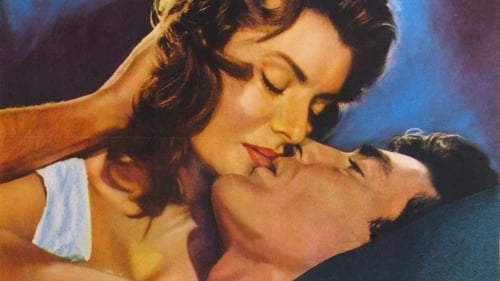
Dialogue
When peasant girl Nives is deserted by smuggler Gino Lodi, she betrays him to the police. Police officer Enzo Cinti, who loves Nives, traces her to the Po River cane-fields, where she is working as a cutter to support herself and an infant son, and warns her that Gino has escaped from prison and is seeking revenge. She rejects his offer to protect her. Gino finds Nives, mourning the drowning death of their son. He surrenders himself to the police and then walks at Nives' side in the funeral procession.

Screenplay
When peasant girl Nives is deserted by smuggler Gino Lodi, she betrays him to the police. Police officer Enzo Cinti, who loves Nives, traces her to the Po River cane-fields, where she is working as a cutter to support herself and an infant son, and warns her that Gino has escaped from prison and is seeking revenge. She rejects his offer to protect her. Gino finds Nives, mourning the drowning death of their son. He surrenders himself to the police and then walks at Nives' side in the funeral procession.

Author
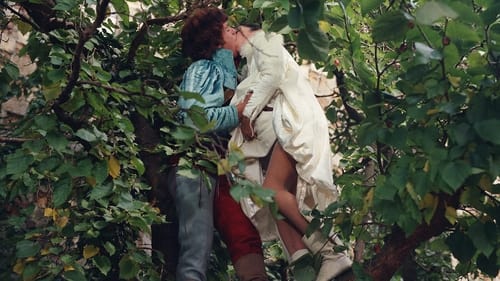
Writer
Pier Paolo Pasolini's controversial medieval Trilogy of Life includes The Decameron (1971), The Canterbury Tales (1972) and Arabian Nights (1974).

Director
Pier Paolo Pasolini's controversial medieval Trilogy of Life includes The Decameron (1971), The Canterbury Tales (1972) and Arabian Nights (1974).

Writer
In the spring of 1970, between the African Orestiade and The Decameron, Pasolini shot a film for which he wrote a commentary in verses but never finished editing. The film was born as a typical Pasolini intervention: filming the strike of the garbage collectors in Rome, who at the time worked in dramatic health conditions, and filming the humility of their daily work, amidst the waste and scraps of society, in the squares and in the streets. Pasolini also filmed the faces of garbage collectors engaged in claims discussions and the result was an extraordinary anthropological picture of an unknown humanity.

Director
In the spring of 1970, between the African Orestiade and The Decameron, Pasolini shot a film for which he wrote a commentary in verses but never finished editing. The film was born as a typical Pasolini intervention: filming the strike of the garbage collectors in Rome, who at the time worked in dramatic health conditions, and filming the humility of their daily work, amidst the waste and scraps of society, in the squares and in the streets. Pasolini also filmed the faces of garbage collectors engaged in claims discussions and the result was an extraordinary anthropological picture of an unknown humanity.
